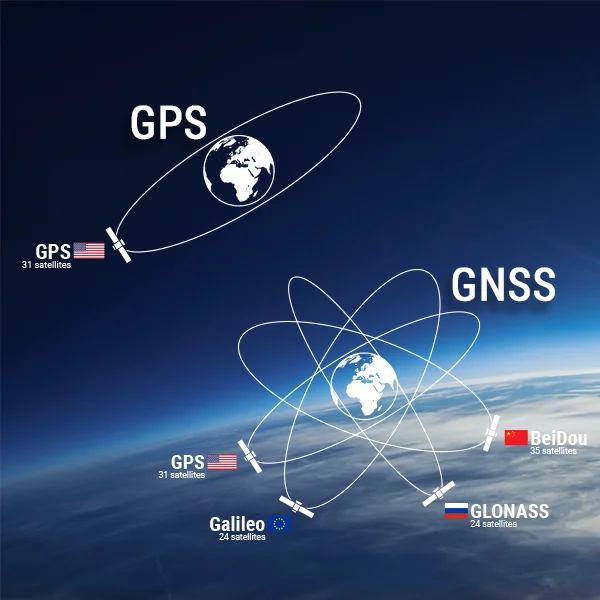In short, GPS is a specific system within the broader category of GNSS.
GPS (Global Positioning System) is a satellite-based navigation system developed by the United States Department of Defense. It consists of a constellation of 24 satellites that orbit the Earth and provide signals that can be used to determine a receiver’s precise location.
GNSS (Global Navigation Satellite System) is a term used to describe any satellite-based navigation system that provides geolocation and time information to users globally. It includes GPS, as well as other systems like GLONASS (Russia), Galileo (Europe), BeiDou (China), QZSS (Japan), and more.
Both GPS and GNSS work by using a network of satellites that transmit signals to Earth. A GPS receiver in a device (such as a smartphone or car navigation system) receives these signals and uses the information to determine its precise location and time. The receiver calculates its position by measuring the time it takes for the signals to reach it from multiple satellites, and using that information to determine its distance from each satellite. By combining data from multiple satellites, the receiver can triangulate its position and determine its location with high accuracy.
In conclusion, GPS is a specific type of GNSS, but GNSS is an umbrella term that encompasses all satellite-based navigation systems globally.

